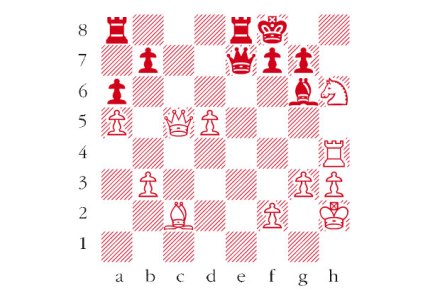no.437
White to play and win. This is a position from Caruana-Kramnik, Leuven 2016. Answers to me at The Spectator by Tuesday 3 January or via email to victoria@spectator.co.uk. There is a prize of £20 for the first correct answer out of a hat. Please include a postal address and allow six weeks for prize delivery. Last week’s solution 1 … Qxf5



















